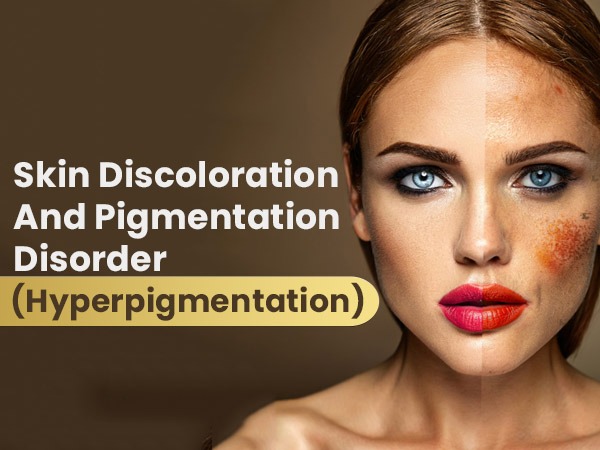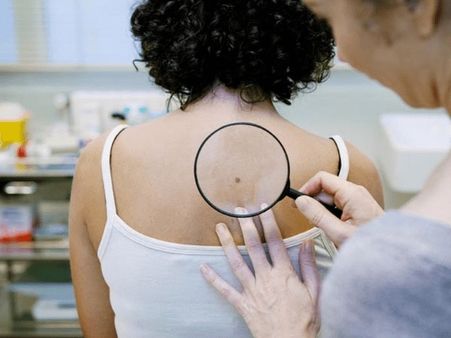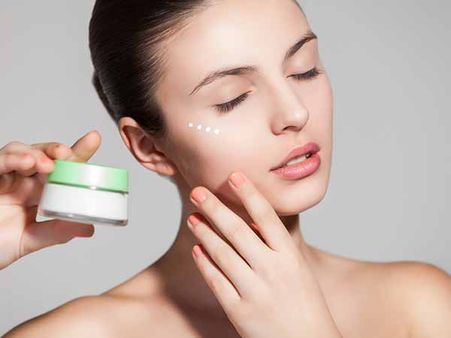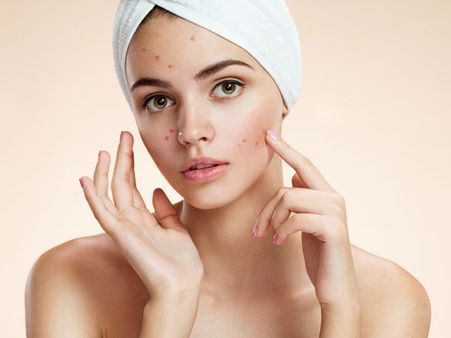Just In
- 2 hrs ago

- 9 hrs ago

- 10 hrs ago

- 14 hrs ago

Don't Miss
- News
 PM Modi Praises Cricketer Mohammed Shami In Election Rally In UP's Amroha
PM Modi Praises Cricketer Mohammed Shami In Election Rally In UP's Amroha - Sports
 Pakistan vs New Zealand Playing 11: PAK vs NZ 2nd T20I Team News, Predicted Lineup And Other Details
Pakistan vs New Zealand Playing 11: PAK vs NZ 2nd T20I Team News, Predicted Lineup And Other Details - Education
 Exam Pressure Does Not Exist; Studying Punctually is Crucial; Says Aditi, the PSEB 2024 Topper
Exam Pressure Does Not Exist; Studying Punctually is Crucial; Says Aditi, the PSEB 2024 Topper - Movies
 When Karan Johar Revealed Sara Ali Khan And Janhvi Kapoor Once Dated Siblings On KWK 7, Guess Who?
When Karan Johar Revealed Sara Ali Khan And Janhvi Kapoor Once Dated Siblings On KWK 7, Guess Who? - Finance
 Reliance, ONGC, Tata, Adanis: Energy Stocks Didn't Get The Memo Of Bears, Up 12% In 30-Days; 10 Stocks To BUY
Reliance, ONGC, Tata, Adanis: Energy Stocks Didn't Get The Memo Of Bears, Up 12% In 30-Days; 10 Stocks To BUY - Automobiles
 Suzuki Swift Hatchback Scores 4 Star Safety Rating At JNCAP – ADAS, New Engine & More
Suzuki Swift Hatchback Scores 4 Star Safety Rating At JNCAP – ADAS, New Engine & More - Technology
 Dell Introduces AI-Powered Laptops and Mobile Workstations for Enterprises in India
Dell Introduces AI-Powered Laptops and Mobile Workstations for Enterprises in India - Travel
 Journey From Delhi To Ooty: Top Transport Options And Attractions
Journey From Delhi To Ooty: Top Transport Options And Attractions
Is Hyperpigmentation A Serious Skin Condition? Know About The Causes, Treatments and Prevention
Hyperpigmentation is a common skin condition characterised by darker skin or discoloured skin either found in small patches or on the entire body. Some of its forms are due to sun exposure and others due to injury, drug usage, skin inflammation or autoimmune disorders.

Extra pigmentation in some skin areas are harmless, but sometimes it can be a serious medical condition. Hyperpigmentation can occur at any age and on any skin type. Take a look at its details.

Causes Of Hyperpigmentation
Melanin is a natural pigment that gives the skin its colour. When the cells responsible for producing melanin get damaged due to certain factors, they start producing more melanin and cause hyperpigmentation.
There are numerous factors that trigger excess production of melanin. Some of the common causes are:
- Sun exposure: Melanin acts as a natural sunscreen for the skin but long-term exposure to sunlight can damage the cells and cause hyperpigmentation. [1]
- Melasma: The condition is common in women during pregnancy. Melasma occurs due to hormonal changes, that gets excess when a woman is pregnant. It can also occur as a side effect of hormonal treatments.
- Skin inflammation/damage: Caused due to skin infection, chemical exposure, burns or trauma to the skin. [2]
- Medications: Hyperpigmentation can be triggered as a side effect of certain drugs or medications such as anti-seizure drugs, antimalarials and chemotherapy. It can also occur due to certain autoimmune or metabolic disorders and vitamin deficiency. [3]
- Age: As a person ages, the melanin production decreases causing uneven distribution of the pigment to body parts, leading to hyperpigmentation.
- Birthmarks: It is a skin discolouration mark either from the birth or appears a few weeks after birth. Sometimes it goes with age while sometimes it can be permanent.


Symptoms Of Hyperpigmentation
- Darkened skin (in patches or entire body) [4]
- Vision problems (albinism)
- Symmetric patches on the face (melasma)
- White patches (vitiligo)
- Age spots
- Acne
- Skin sensitivity


Diagnosis Of Hyperpigmentation
- Physical exam: This includes examining the severity of the hyperpigmentation. A medical expert or dermatologist may also ask for the medical history of the patient to see if any medications or environmental condition is the cause for the same.
- Skin biopsy: It involves taking a sample of the skin and viewing it under a microscope. [5]
- Blood test: To get a bigger picture of the condition.
- Wood's lamp examination: To rule out vitiligo and bacterial and fungal skin infections.

Treatment Of Hyperpigmentation
The treatment is entirely based on the cause of the condition. A medical expert will try to treat the underlying condition involved in causing hyperpigmentation. Common treatment methods are as follows:
- Laser treatment: It is basically done to remove the birthmarks, on the choice of the person. [6]
- Anti-pigment cream: It includes dermatologist-proven topical creams to reduce excess melanin production.
- Chemical peels: It involves exfoliating the affected skin by applying a chemical solution. Chemical peeling removes the dead skin and makes ways for the growth of new skin. [7]
- Hydroquinone: It is prescribed medicine to lighten the skin. This medicine must be taken strictly under dermatologist instruction as it may cause adverse effects.
- Broad-spectrum sunscreen: Specially designed to protect from all types of harmful sun rays.

Prevention Of Hyperpigmentation
- Using sunscreen of SPF of at least 30-40.
- Covering the face and exposed body parts from sunlight by wearing hats or gloves.
- Limiting sun exposure when it is strongest (10 am to 4 pm)
- Consuming vitamin C rich foods. [8]
- Maintaining a proper skincare routine.

Common FAQs
1. How long does hyperpigmentation take to go away?
With the advancement in cosmeceutical products, the efficacy in treating hyperpigmentation have been improved. In a study, it was found that within 12 weeks, the unevenness of the skin tone due to hyperpigmentation has been improved. [10]However, the treatment depends on how dark the spot is and to what length it is spread.
2. How can I remove pigmentation at home permanently?
There are certain home remedies which are considered beneficial for hyperpigmentation. Some of the effective remedies are aloe vera, turmeric and milk mask, raw potato and orange peel mask.
3. What should we eat to remove pigmentation?
Foods to improve hyperpigmentation include:
- Dark leafy vegetables such as kale broccoli and peas
- Fruits like papaya and guava
- Seafood such as salmon, crabs and shrimp
- Green tea
- Grapes
- Tomatoes and potatoes

-
 body careWhat To Do When See Pigmentation Spots On Your Body
body careWhat To Do When See Pigmentation Spots On Your Body -
 wellnessEasy And Effective Home Remedies for Melasma (Dark Patches On The Skin)
wellnessEasy And Effective Home Remedies for Melasma (Dark Patches On The Skin) -
 disorders cureMelasma (Chloasma): What Are The 6 Factors That Cause It? Symptoms, Treatments And Prevention
disorders cureMelasma (Chloasma): What Are The 6 Factors That Cause It? Symptoms, Treatments And Prevention -
 pregnancy parentingWhat Is Pregnancy Mask (Melasma): Ways To Manage It
pregnancy parentingWhat Is Pregnancy Mask (Melasma): Ways To Manage It -
 disorders cureDo You Have A Birthmark? It May Be An Indication Of Underlying Medical Problem
disorders cureDo You Have A Birthmark? It May Be An Indication Of Underlying Medical Problem -
 healthWorld Vitiligo Day 2023: Are You At Risk Of Developing Vitiligo?
healthWorld Vitiligo Day 2023: Are You At Risk Of Developing Vitiligo? -
 disorders cureWorld Vitiligo Day 2021: What Is Vitiligo? Causes, Types, Symptoms, Complications And Treatment
disorders cureWorld Vitiligo Day 2021: What Is Vitiligo? Causes, Types, Symptoms, Complications And Treatment -
 nutritionWorld Vitiligo Day 2021: List Of Foods Which People With Vitiligo Should Eat And Avoid
nutritionWorld Vitiligo Day 2021: List Of Foods Which People With Vitiligo Should Eat And Avoid -
 disorders cure10 Natural Remedies To Treat Vitiligo
disorders cure10 Natural Remedies To Treat Vitiligo -
 disorders cureInternational Albinism Awareness Day 2021: What Is Albinism? Causes, Symptoms And Treatments
disorders cureInternational Albinism Awareness Day 2021: What Is Albinism? Causes, Symptoms And Treatments


 Click it and Unblock the Notifications
Click it and Unblock the Notifications




